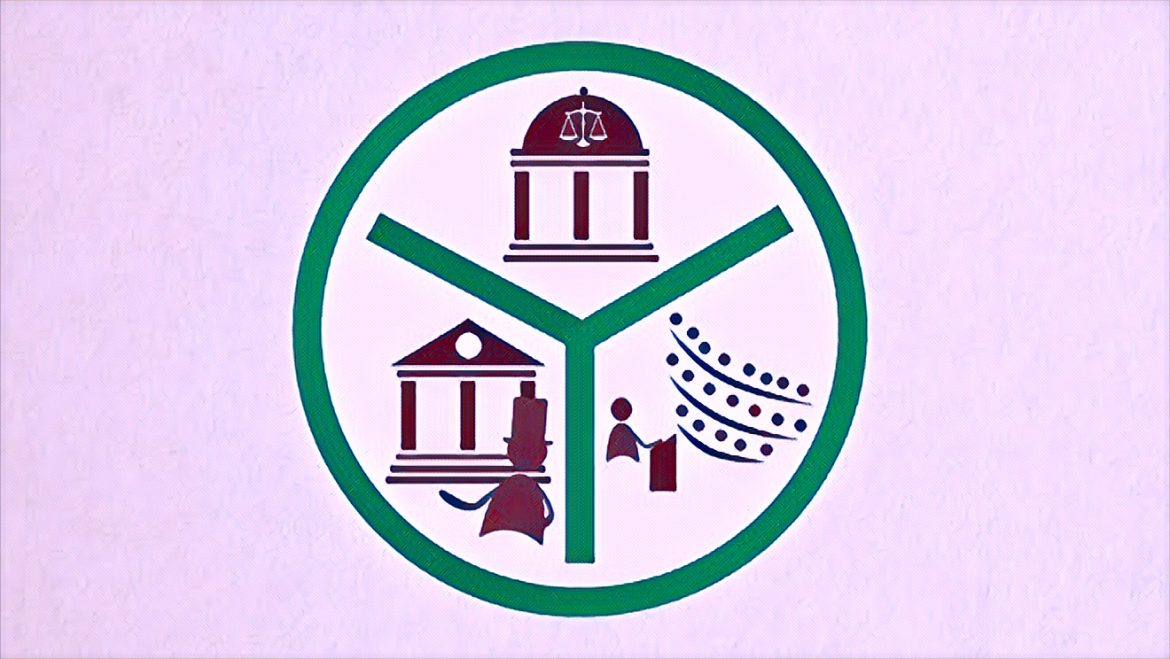KEY POINT
- The Zimbabwe balance of power divides authority between executive, legislative, and judicial branches.
- Executive powers are checked by Parliament and judicial oversight.
- The judiciary in Zimbabwe faces challenges of independence and autonomy.
Zimbabwe’s governance framework is constitutionally designed to uphold the separation of powers among the executive, legislative, and judicial branches. This structure aims to ensure a system of checks and balances, promoting accountability and preventing the concentration of authority.
Executive branch
The executive branch, led by the President of Zimbabwe, is responsible for implementing and enforcing laws. The President holds significant authority, including appointing ministers and other key officials. However, this power is constitutionally limited to prevent overreach. For instance, the Constitution of Zimbabwe mandates that certain appointments require parliamentary approval, ensuring that the executive does not operate unilaterally. According to Zimbabwe’s Constitution, executive powers must be exercised in line with constitutional principles, particularly in respect of human rights and accountability.
Legislative branch
The legislative authority resides in a bicameral Parliament, comprising the Senate and the National Assembly. This body is tasked with enacting laws, approving budgets, and providing oversight of the executive. Parliament plays a crucial role in maintaining the balance of power, as it scrutinizes executive actions and holds officials accountable through mechanisms such as question periods and parliamentary committees. According to a report by Parliament of Zimbabwe, the legislative branch has the constitutional mandate to review executive appointments, ensuring that the executive does not operate without oversight.
Judicial branch
The judiciary interprets laws and ensures their alignment with the Constitution. Judicial independence is a cornerstone of Zimbabwe’s legal system, intended to allow courts to operate without undue influence from the other branches. However, concerns have been raised regarding the judiciary’s autonomy. Reports by Amnesty International suggest instances of executive interference, such as the controversial appointment processes for senior judges, which some argue compromise judicial impartiality. For example, the Constitution of Zimbabwe Amendment (No. 1) Act, 2017, altered the procedure for appointing the Chief Justice, leading to debates about its impact on judicial independence. This amendment allowed the President to appoint the Chief Justice directly, a move that was widely criticized by civil society and human rights advocates.
Checks and balances
The interplay among these branches is designed to prevent any single entity from dominating the government. Parliament exercises oversight through legislative scrutiny and budget approvals, while the judiciary can review the constitutionality of laws and executive actions. Despite these provisions, the effectiveness of checks and balances has been questioned. Instances of executive dominance, such as the use of presidential powers to bypass parliamentary procedures, have raised concerns about the erosion of democratic principles. According to Human Rights Watch, bypassing parliamentary scrutiny poses a threat to Zimbabwe’s democracy, as it limits transparency and weakens oversight.
Recent developments
Recent events have highlighted tensions within this tripartite system. In 2021, the judiciary faced criticism over its handling of politically sensitive cases, with allegations of bias and executive pressure. For example, the imprisonment of opposition leader Job Sikhala sparked widespread criticism regarding judicial independence, with some alleging that judges acted under executive influence. Additionally, legislative amendments affecting judicial appointments have sparked debates about the separation of powers. These developments have been flagged by international bodies such as the International Commission of Jurists (ICJ), which emphasized the need for Zimbabwe to uphold judicial independence as part of its international human rights obligations (ICJ Report on Zimbabwe).


